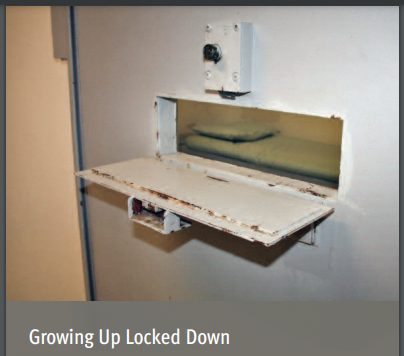
ACLU report cover
Recently, the American Civil Liberties Union (ACLU) and Human Rights Watch published a new report titled “Growing Up Locked Down: Youth in Solitary Confinement in Jails and Prisons Across the United States.”
The publication involved interviews with more than 125 juveniles in 19 states, alongside detention officials in 10 states. The authors of the report argue that solitary confinement harms young people mentally and physically, with juveniles frequently denied access to medical, rehabilitative and psychological treatments and services while in confinement. Furthermore, the report alleges that in jails and prisons across the United States, young people are routinely subjected to extensive stays in solitary confinement -- in some cases, for weeks and even months at a time.
“Solitary confinement of adolescents is unnecessary,” the report reads. “There are alternative ways to address the problems -- whether disciplinary, administrative, protective or medical -- which officials typically cite as justifications for solitary confinement.”
The authors of the report state that approximately one third of the young people they interviewed reported being held in solitary confinement for one to six months before turning 18. Twenty-one juveniles said that, while in confinement, they were denied visitations with family members, while an additional 16 recalled being isolated for days on end, without even reading materials provided to them.
The report offers several recommendations for federal and state legislation, including the total prohibition of solitary confinement for inmates under the age of 18. The authors additionally call for the cessation of holding juveniles in adult prisons, as well as advocating for the ratification of human rights treaties “protecting young people without reservations.”
“Solitary confinement, and many of the deprivations that are typically associated with it, has a distinct and particularly profound impact on young people, often doing serious damage to their development and psychological and physical well-being,” the report states. “Because of the special vulnerability and needs of adolescents, solitary confinement can be a particularly cruel and harmful practice when applied to them.”